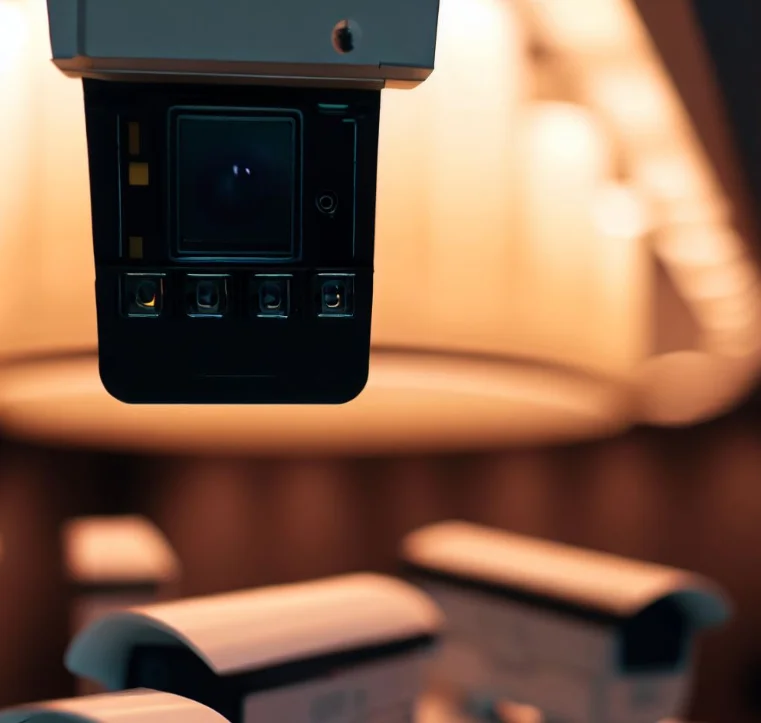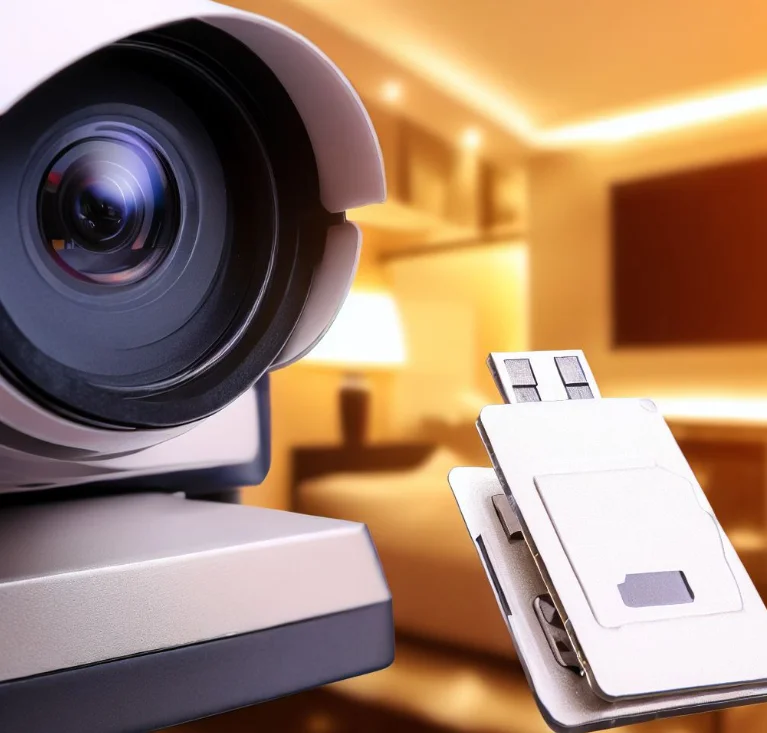As one of the most widely adopted security strategies for commercial properties worldwide, implementing an IP camera system is a savvy choice for any hotel looking to boost safety measures.
However, in the hospitality industry where around-the-clock reliability and data accessibility are paramount, integrating localized storage through SD cards provides hotels with crucial benefits beyond traditional centralized or cloud-based recording methods. This guide explores how pairing IP cameras with SD cards can deliver optimized surveillance solutions specifically for hotel security needs.
Maximizing Uptime for Guest Satisfaction
Few things undermine a hotel’s reputation like periods of downtime when security monitoring isn’t functional. Cloud-based camera systems or centralized recorders relying on continuous internet are at risk during temporary server outages or connection failures. However, IP cameras with built-in SD card slots ensure localized recording still occurs independently, safeguarding video evidence and maintaining coverage.

Scalable Storage to Match Property Size
The variant storage capabilities of micro SD cards make them the perfect scalable solution for hotels of any size. Budget lodging establishments requiring surveillance for just 10 standard definition cameras can economically achieve this with basic 64GB cards in each unit.
Larger resorts housing hundreds of guests across several buildings are also accommodated, as many Megapixel IP cameras now support high capacity 128GB cards or server-grade SDs in the terabytes. Footage storage spans are increased while upfront and ongoing infrastructure costs remain reasonable compared to NVR or cloud-based alternatives.
Simple Remote Access for Risk Mitigation
Perhaps the top benefit IP cameras with SD card recording provide hotels is access to investigation-grade video anytime, anywhere. By removing an SD card from an on-site camera, security teams can rapidly pull footage from the comfort of their mobile device or office workstation without dependencies on network video recorders.

Purpose-Built Hardware For Hospitality Challenges
Leading IP camera manufacturers like Axis, Vivotek, and LG understand the rigorous demands hotels place on security equipment from both a performance and endurance standpoint. Their camera lines are engineered to excel where cloud-only options often fail, such as:
- Weatherproof housings for indoor/outdoor resilience against weather extremes
- Wide dynamic range for high contrast lighting areas like parking lots
- Motion detection tuning for busy foot traffic without false alerts
- Tamper-proofing to discourage theft of valuable surveillance assets
- Continuous recording buffering for incidents that occur off schedule
Pairing these hotel-tested products with equally reliable SD cards produces solutions trusted to fulfill hospitality requirements for many years of dependable operation. Both initial value and lifecycle costs are maximized.
Tampering Detection and Cybersecurity
As public access points within properties, IP cameras containing valuable video assets will inevitably encounter attempts at theft or manipulation. But SD cards provide an additional layer of defense, as many models now support tamper detection alarms if unauthorized removal is identified.
Further, centralized systems relying on cloud storage introduce cybersecurity vulnerabilities during transit to remote servers. By storing footage locally with no internet exposure, SD cards uphold the highest safety standards without risk of remote hacking or data breaches that could release sensitive guest information. The already stringent PCI compliance demanded of lodging is enhanced.
In summary, incorporating IP cameras optimized for seamless SD card partnerships delivers surveillance strategies unrivaled in reliability, scalability, remote accessibility and robust feature sets specifically for hospital settings. Continuous protection of guests, staff and assets is assured around the clock through a decentralized, self-sufficient recording infrastructure. For these reasons, the IP camera and SD card combination has become indispensable for hotel security needs worldwide.
